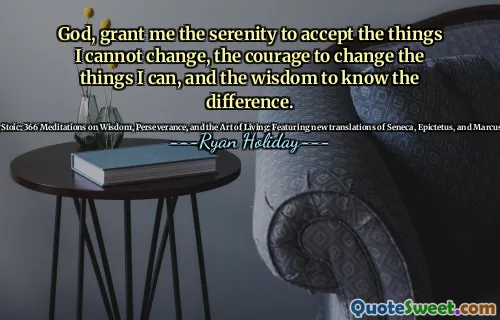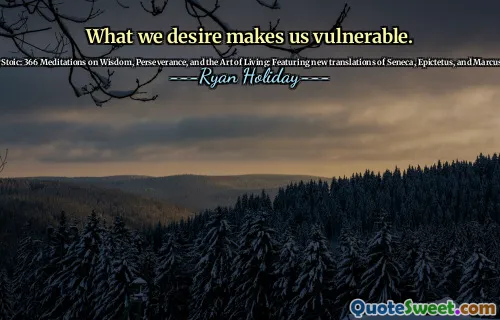Some things are in our control, while others are not. We control our opinion, choice, desire, aversion, and, in a word, everything of our own doing. We don't control our body, property, reputation, position, and, in a word, everything not of our own doing.
The quote emphasizes the distinction between what we can control and what we cannot. It suggests that our thoughts, choices, and desires fall under our control, meaning we have the power to shape our responses and attitudes toward various life situations. This perspective aligns with Stoic philosophy, which teaches that our inner mindset is the key to our well-being and resilience, allowing us to navigate the challenges of life with grace.
Conversely, the things beyond our control—such as our physical bodies, social status, and external circumstances—are emphasized as areas where we should not invest our energy in trying to exert influence. Instead, the wisdom lies in recognizing and accepting these limitations, which allows us to focus our efforts where they can be most effective. By doing so, we can cultivate peace of mind and a more fulfilling life, as articulated in "The Daily Stoic" by Ryan Holiday.







